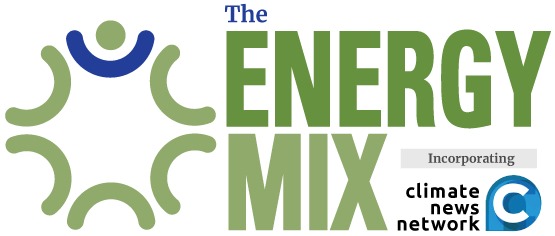Climate Survivors Build Support Networks, Share Stories to Drive Change
As political leaders continue to fall short on climate action, communities and survivors of extreme weather disasters are stepping up—sharing their experiences and pushing for legal accountability.
“Humans are wired to understand stories,” said Chris Kocher, co-founder of Extreme Weather Survivors (EWS), a community of people directly harmed by disasters across the United States.
“Understanding one person’s story is easier for people to comprehend than ‘Climate change is going to disrupt our entire way of life’,” Kocher told Inside Climate News.
With research confirming that rising disaster frequency and intensity—such as hurricanes, floods, and wildfires—is tied to human-driven climate change, more survivors are making the connection and organizing in response. They’re offering each other support and, in some cases, pushing for laws that address the crisis and provide relief to those living through its impacts.
Some of these efforts are emerging in the U.S., where the Trump administration is undermining disaster relief even as more than 137 million people across the country were affected by [pdf] major disasters and emergency declarations in a single year.
EWS offers services to help survivors share their stories with no-cost support, peer-to-peer connection, and disaster mentorship. Its website says it aims to “empower those impacted by extreme weather to be storytellers and changemakers in the fight to build resilient communities.” It also manages an online community of about 1,000 disaster survivors and experts who share resources and answer questions in real time on Slack. In January, they coordinated to provide relief efforts after the Los Angeles wildfires.
The group also advocates for legislative causes. In Vermont, they partnered with victims of flooding to advocate for the Climate Superfund Act, and in California to support Senate Bill 222, which would create a legal pathway for insurers to recover climate-related losses from fossil fuel companies.
Elsewhere in the U.S., climate disasters have inspired high school students to join school-based advocacy groups—work that many continue after graduation. Others step in later in life. After the 2017 Tubbs Fire destroyed her home in Santa Rosa’s Coffey Park neighborhood, 55-year-old Annie Barbour helped form Coffey Strong, a community group that shares recovery advice, holds local officials accountable, and supported survivors of the Camp Fire in Paradise, California.
Similar efforts are emerging in Canada, where Sierra Club Canada brought survivors together to exhibit personal belongings salvaged from floods, fires, and storms that devastated their communities.
In another U.S. exhibit, incarcerated people shared artwork to reflect how climate change affects prison life. With poor infrastructure and high temperatures, some inmates have died during extreme heat events, Inside Climate writes.
On a global scale, the Geneva-based World Council of Churches is trying to support future generations who will suffer the worst consequences of climate change. The organization, which represents half a billion Christians, published a handbook for communities of faith to hold investors accountable for fossil fuel funding, called “Hope for Children Through Climate Justice.”
Frederique Seidel, senior program lead on children and climate, told Inside Climate News the handbook shows “how in different countries, people of faith can seize the very basic legal frameworks to defend the younger generation’s right to a livable future.”
Cover photo: The Tribune/flickr



